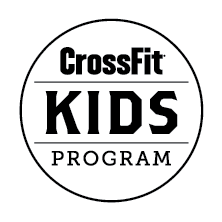Slow Down your Eating
In one of our nutrition talks during our most recent challenge we discussed mindful eating practices. One of the primary strategies of mindful eating was to SLOW down your eating. Learning to eat more slowly is one of the simplest yet most powerful things you can do to improve your overall health.
We are such a rushed society these days, always on-the-go and we rarely take the time to savour our food, let alone even sit down to chew it properly!
Reasons to eat slowly:
- Sensing Satisfaction – Your brain is 20 min behind your belly! Eating slowly gives your body time to recognize that you are feeling satisfied (different than feeling full or stuffed). When you slow down, savor a meal, pay attention to tastes and textures, and appreciate each mindful bite, you leave the table feeling good!
- Smaller portions (without trying) – This goes hand in hand with #1. If you are eating so fast and do not recognize that you are satisfied, you will keep eating! By eating slowly we naturally eat a smaller portion size. For those with weight loss goals, this is so important!
- Improved digestion – Digestion is like a chain reaction. As soon as we see, smell, or think about food (step 1), we start salivating to prepare for putting that food in our mouth (step 2). Saliva contains enzymes that break the food down, and moistens the mouth for easier swallowing. Meanwhile, digestive steps 3, 4, 5 etc. have to get ready to go to work. Our stomach starts to secrete more acid. Our small intestine starts to get ready for some peristalsis. And so forth. If we rush this process, we force our GI tract to deal with stuff before it’s fully prepared.
Tips for Eating Slowly:
- Sit down to eat in a calm environment with minimal distractions. Don’t eat while driving, while watching TV, while texting, etc. Pay attention to your food.
- Choose high-fiber foods that take more time to chew, such as fresh fruits and vegetables.
- Put down your utensils between bites. Take a moment. Breathe. If you’re eating with other people, enjoy making conversation for a few minutes.
- Try setting a minimum number of chews per bite. This will feel strange at first, but give it a try and see what you discover.
- Use smaller plates or different utensils.
- If you find yourself rushing, that’s OK. Put your utensils down and take a minute to re-focus. If slow eating isn’t habitual for you, this will take practice.
- Set aside time to eat – at least 15-30 minutes for each meal, and preferably even longer at dinner. You’re fueling your body, it is important and deserves the time!
Most of us lead hectic, fast-paced lives, so it’s understandable that we might try to rush our meals. But eating quickly does us no favors. When we eat too quickly we end up eating more than we need, which leads to poor digestion, weight gain, and lower satisfaction from eating.
Eating slowly, in contrast, makes for better digestion, easier weight maintenance – and much greater satisfaction from our meals.
Coach Caileigh

